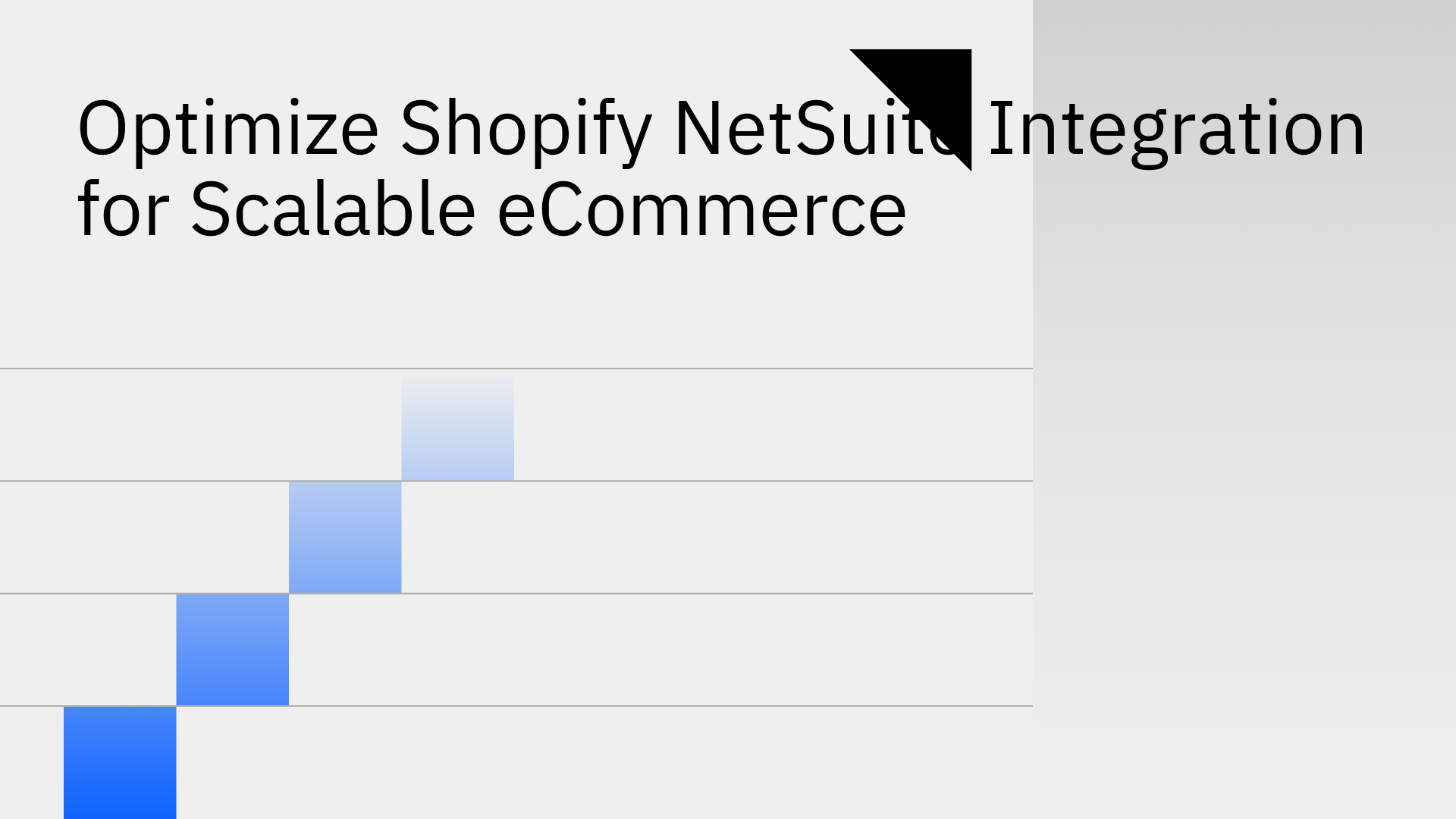
High-growth eCommerce businesses running on Shopify face a critical operational challenge: data fragmentation. Your Shopify storefront generates vast amounts of customer, order, and product data, while your NetSuite ERP serves as the central nervous system for finance, inventory, and supply chain management. Without a robust integration, these systems become data silos, leading to manual data entry, costly errors, stockouts, and a disjointed customer experience. This operational friction directly inhibits scalability.
Generic iPaaS solutions and basic connectors offer superficial links but often lack the real-time performance and deep, bi-directional capabilities required for mission-critical operations. They frequently rely on scheduled batch updates, introducing latency that can result in overselling and inaccurate reporting. Custom-coded integrations create a different problem: a brittle, high-maintenance system that accumulates technical debt and requires constant developer oversight.
Stacksync provides a solution: a purpose-built integration platform engineered to connect NetSuite with Shopify. It establishes a real-time, bi-directional data highway between your operational systems, eliminating data silos and automating critical workflows. By guaranteeing data consistency and reliability at scale, Stacksync empowers your teams to operate with maximum efficiency and focus on strategic growth.
Stacksync delivers a comprehensive set of features designed to unify your eCommerce and ERP ecosystems. The platform moves beyond simple data mapping to provide automated synchronization of your most critical business objects.
True Bi-Directional Customer Sync
Maintain a single, authoritative source of truth for customer data. Stacksync automatically syncs customer profiles, contact information, and shipping/billing addresses between Shopify and NetSuite in real time. Whether a customer is created in your ERP or via a Shopify purchase, the data is reconciled across both systems, ensuring consistency for marketing, sales, and support teams.
Real-Time Product & Pricing Sync
Centralize product information management within NetSuite and push updates to Shopify instantly. Stacksync ensures that product descriptions, SKUs, pricing tiers, and promotional details are aligned. This eliminates pricing discrepancies and helps guarantee a consistent customer experience across all touchpoints.
Automated Inventory Sync
Prevent stockouts and overselling with rapid inventory synchronization. Stacksync monitors inventory levels in NetSuite—across single or multiple warehouse locations—and updates Shopify stock levels in real time. This automated process helps ensure inventory accuracy, optimizes fulfillment, and protects revenue[1].
End-to-End Order Lifecycle Automation
Automate the entire order-to-cash lifecycle. When an order is placed on Shopify, it is created in NetSuite, triggering fulfillment and financial processes without manual intervention. Shipment confirmations, tracking numbers, and order status changes in NetSuite are automatically synced back to Shopify, keeping customers informed and reducing support overhead[2].
Advanced Workflow & Custom Object Sync
Stacksync is built for complex business logic. The platform supports both standard and custom objects and fields, allowing you to tailor the integration to your unique operational needs. Configure custom workflows, automate processes like split shipments or partial returns, and ensure that all relevant data, no matter how specific, is synchronized[2].
Proactive Issue Management & Support
Achieve reliability with Stacksync's advanced monitoring and error handling. The sync issue management dashboard provides a centralized view of all integration activity, allowing you to quickly identify, diagnose, and resolve any failures. With real-time alerting and robust logging, your technical teams can maintain data integrity and operational continuity[2].
Integrating Shopify and NetSuite with Stacksync delivers benefits across your organization, empowering teams with reliable, real-time data and automated processes.
When evaluating Shopify-NetSuite sync options, it is important to understand the technical differences between solutions. Stacksync is not a generic iPaaS or a simple connector; it is a purpose-built platform engineered for performance, reliability, and scalability.
What are the main options to connect NetSuite with Shopify?
There are three primary approaches:
Why is real-time, bi-directional sync so critical?
Real-time, bi-directional sync helps ensure data is consistent across both systems at all times. This is critical for:
How does Stacksync handle synchronization errors?
Stacksync provides an issue management dashboard that offers visibility into your data flows. If a sync fails (e.g., due to an invalid data format), the platform triggers a real-time alert. From the dashboard, your team can diagnose the root cause, retry the failed sync, or revert the change, helping ensure data integrity is maintained[2].
Can Stacksync integrate custom fields and objects between Shopify and NetSuite?
Yes. Stacksync is designed to handle both standard and custom data models. The platform allows you to map and synchronize custom fields and custom objects that are unique to your business processes, supporting a complete and tailored integration[2].